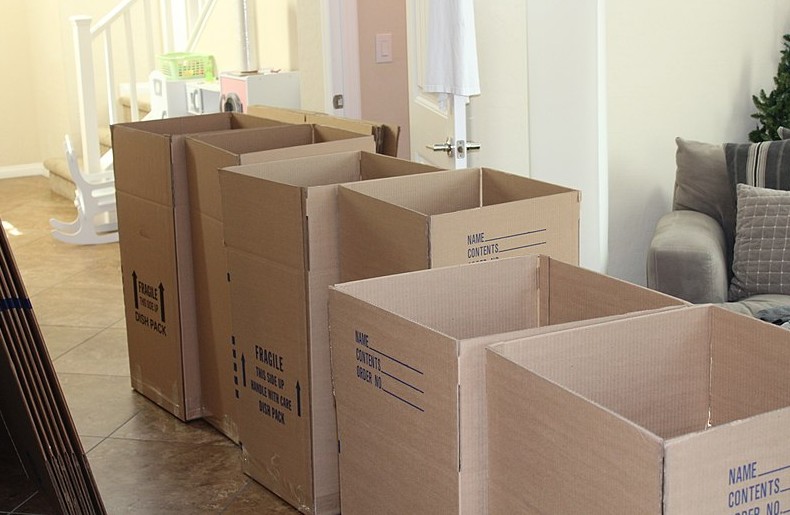It’s tough when kids grow up and move away. Especially as those kids begin to have children of their own, a lot of parents begin to question if they should relocate so they’re a little closer to both their children and grandchildren.
If you’re facing this situation, you can find plenty of reasons to move closer to your family. Not only would you live near the people you love, but you would also get to start over in a new city or state and in a different home.
While it all sounds exciting, this isn’t a decision to make lightly. After all, some people who have done this had a negative experience rather than a positive one. To decide if moving closer to your family is a good or bad idea, you need to sort out several things.
Testing the Waters
Consider testing the waters before making a 100 percent commitment. If you have a job that allows you to telecommute or you’re retired, rent an Airbnb for about a month. During your stay, you can gauge how often and well visits with your kids and grandkids go.
You can explore the area and visit the same types of businesses you currently frequent. That includes a hair salon or barber, grocery store, dry cleaners, fitness center, and so on. The purpose of a trial run is to determine if moving closer to your family is the right thing to do. If everything works out, talk to your employer about relocating, or you can begin searching for a new job.
Your Family’s Reaction
If you have grandkids, they’ll love having you closer. As for your grown children, it depends. Even if your kids love the idea of having you nearby, everyone needs to agree on boundaries.
The following are some of the questions to ask.
- Is it okay to show up unannounced, or should you or your kids call first?
- How much time will you get to spend with your grandchildren?
- Can everyone get together as a family for outings or dinner, and if so, how often?
- Is it okay to ask for help with things around the house, or should everyone handle problems themselves?
- How long do the kids plan to stay at their current location?
Close to One…Far From Another
As a parent, the last thing you want to do is make any of your children feel bad or unfairly treated. If you move closer to one family member, does that take you further away from another? Even if you’re emotionally closest to one specific child, putting distance between you and any other kids could create unnecessary drama.
If you’re close to all of your children, you want to factor in how long it would take to get from one family’s home to another. Also, consider the cost of traveling to see the children that won’t live super close.
Cost of Living
You need to factor in the cost of living, too. For instance, if you currently live in the Midwest, you’re accustomed to seeing homes sell for around $200,000. However, if you might be moving to the West Coast, closer to your family, the median home price jumps to $800,000 and higher.
If you can relocate with the company you work for, great. Just make sure the move includes a pay increase for a higher cost of living. Otherwise, moving might not make good financial sense. To make the right decision, calculate what it would cost to move as opposed to the cost of driving or flying to visit your family more often.
You can also put your new costs into a retirement software application such as WealthTrace or a basic financial planning calculator such as BankRate’s. Using retirement and financial software such as these can help you make this very important decision.
Moving Expenses
Especially when moving from one side of the country to another, you’re going to spend a substantial amount of money. Even going a few hundred miles could easily cost $2,000. If relocating with your employer, the company might pay for some or all of the moving expenses. Otherwise, the money comes out of your pocket.
In that case, you might consider downsizing, which also comes with some tough decisions. Are you willing to get rid of some of your belongings? If so, how much and what items do you want to keep? This also entails selling your current house and finding something comparable or a little smaller that fits within your budget.
Career Change
Depending on your age, you might need to keep working after moving closer to your family. The best scenario is to transfer with your current employer. If that’s not an option, you can secure a different job. The position you take would depend on where you move and the type and level of your expertise.
The “Golden Years”
If you’re getting closer to retirement, ask yourself if moving will take you to a place where you can enjoy your “golden years” to the fullest. Yes, you’d be closer to your kids and grandkids, but for retirement, you have to consider much more.
For instance, you want to make sure there’s a doctor qualified to take care of any special healthcare issues. Even if you don’t have any, you want to feel comfortable that you can find an excellent primary physician. Also, does the city or town have a high-ranking hospital?
Taxes are another consideration. You might live somewhere now where taxes are affordable. However, by moving closer to your family, taxes could go up significantly. Therefore, you need to consider your budget but also how much of your leisurely activities, if any, you’d have to forfeit.
Finally, does the place where your family live offer the types of things that you enjoy doing? Particularly if you’re retired, you probably want access to fine arts and performing arts venues, great shopping, wonderful yet affordable restaurants, clubs for seniors, and so on.
